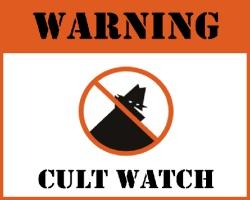When you think of danger, things such as snakes, bombs, and too fast around a curve in a Corvette cross one’s mind. However, from a Christian, one of the most dangerous things is a cult.
While some cults may seem harmless, beneath the surface the teachings radically contradict Christianity. What would make a person choose to get involved in a cult? First, as mentioned, they may seem innocent enough to any newcomer, and their radical doctrines do not surface until one is entrenched.
Second, people often join cults because they want to belong to something and have a purpose. They often choose a cult instead of Christianity because the cult offers an aspect that initially appeals to the person’s perceived need(s). For instance, some cults propose there is no hell and everyone goes to heaven. Others say they agree with Christianity, so one could consider themselves a Christian while participating in a cult. However, they could not be further from the truth.
What makes cults so dangerous is they give ultimate authority to their leader instead of to the Bible or God, and that leader usually is in it for his or her own motives. For example, Jim Jones used his authority to lead his 909 followers to South America, where he forced them to consume a poison-laced beverage, thereby leading to mass suicide. Leaders who claim this unlimited authority should cause a sensible person to be cautious.
Thirdly, cults expose participants to demonic powers. Many cults originated with demonic visions. In retrospect, cult founders have admitted to dabbling in or practicing witchcraft and “dark arts.”
A fourth reason to steer clear of cults is even though they often say they hold the same beliefs as Christianity, they teach radically different doctrines, particularly those regarding salvation. Cults often stray from biblical truth in myriad ways. The most prominent deviation is the denial of the God of the Bible.
Almost all cults deny the Trinity, and some think of God as a created, physical being. Furthermore, they deny Jesus was God incarnate, the Messiah. Some think He was an archangel or the actual physical baby of God as a result of having physical intercourse with Mary. The bottom line is the fact that a true cult does not accept Jesus as the sole means to salvation from eternal separation from God.
Cults deny the bodily resurrection of Jesus after His crucifixion, as well as salvation through grace. Cults teach that salvation is achieved through works, and grace is only possible after one has done certain things. They deny the Bible is God’s inspired, inerrant Word. Instead, it has second-class status next to the writings of cult leaders; their writings are considered to be ultimate truth, which is how they receive ultimate authority. Also, in direct contradiction to the Bible, cults often predict a distinct date for Christ’s return.
Finally, there is overemphasis on money, and money always is required from cult members. This last point proves the typical goal of cult leaders is not to help others religiously, but to receive power and wealth.
Cults often re-define and re-interpret biblical meanings and concepts, particularly regarding God, Jesus and salvation. Hence, it may seem like cults agree with Christianity about God, but what they mean by their term “God” could be something totally different than the biblical teachings.
Cults profess to hold exclusive truth; there is no other way to eternal life, because they alone speak the truth. Because cult followers believe this, they must do anything the cult leader commands. They often deny blemishes in their own history, as well as the questionable practices of their founders and even their own former practices that were abandoned for legal reasons.
For the sake of your eternal security, stay away from cults! If you know anyone who is a cult member, seek help for him or her before it’s too late. Learn what the cult’s teachings really are; most likely you will be surprised. Follow the Bereans’ actions from




